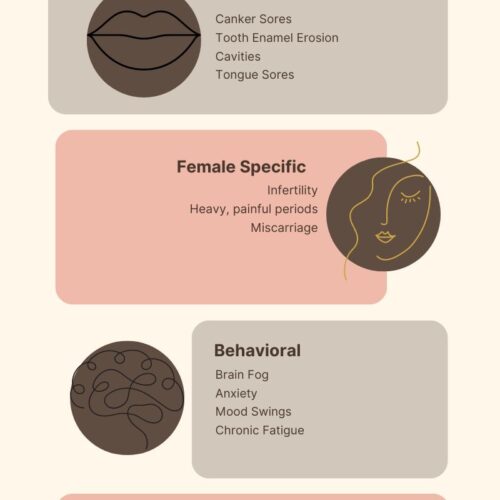Getting diagnosed with Celiac Disease is not always an easy process. According to Beyond Celiac, “It is estimated that up to 83% of Americans who have celiac disease are undiagnosed or misdiagnosed with other conditions.” It can be helpful during this process to understand what tests your doctor may order and once you receive the results, what exactly they show.

In most cases the testing for Celiac Disease starts with blood tests and then an endoscopy. It is extremely important that you do not start a gluten-free diet before the testing occurs. The lack of gluten in your diet can cause false negatives for both the blood tests and the endoscopy. The general recommendation ingesting at least the equivalent of two slices of bread for 6 to 8 weeks before testing.
Blood Tests
Blood tests are used to measure certain antibodies that are typically elevated in people with celiac disease. The main blood tests used for celiac disease screening include:
- Tissue Transglutaminase Antibodies (tTG-IgA): This is the primary test for celiac disease. Elevated levels of tTG-IgA are suggestive of celiac disease, though it’s essential to be consuming gluten-containing foods for accurate results.
- Total Serum IgA: Some people with celiac disease may have a deficiency of immunoglobulin A (IgA), which can affect the accuracy of the tTG-IgA test. Measuring total serum IgA levels helps ensure the reliability of the tTG-IgA test.
- Endomysial Antibodies (EMA-IgA): This test is highly specific to celiac disease and detects antibodies that target tissue transglutaminase.
- Deamidated Gliadin Peptide (DGP-IgA and DGP-IgG): These tests detect antibodies against a specific component of gluten called gliadin.
Endoscopic Biopsy
If the blood tests suggest celiac disease, an endoscopy may be recommended. During this procedure, a thin, flexible tube with a camera (endoscope) is inserted into the upper gastrointestinal tract to obtain small tissue samples (biopsies) from the lining of the small intestine. These samples are then examined under a microscope for characteristic changes associated with celiac disease, such as villous atrophy and increased intraepithelial lymphocytes.
Genetic Testing
Celiac disease has a strong genetic component, and it is closely associated with specific genetic markers, namely HLA-DQ2 and HLA-DQ8. Genetic testing can help identify individuals who are at a higher risk of developing celiac disease. It is possible to have the genes for celiac disease and never actually develop the disease. Only 3% of people that carry the genes will actually develop Celiac Disease. In very rare cases, someone who doesn’t carry the HLA-DQ2 and HLA-DQ8 genes can have Celiac Disease.
The Family Connection
Celiac Disease runs in families. So, if someone in a family has been diagnosed with Celiac Disease their immediate family members have a 1 in 10 chance of also having it. For that reason, all immediate family members must be tested even without physical symptoms. This testing must continue every 2 to 3 years after or if symptoms present even if the initial testing is negative. Celiac Disease can be triggered and therefore past negative testing does not mean that a positive result won’t happen with subsequent testing.
Is it necessary to have the testing?
As with any other health-related issue, it is between an individual and their physician to decide what is right for them. ** Please remember, I am not a medical professional, so please consult your doctor for any medical advice. ** I know that a lot of people question whether the testing is necessary, because if the treatment is going to be a gluten-free diet, why not just start the diet without the testing? Honestly, it makes sense. However, there are some reasons to consider going through with the testing to receive a diagnosis. The treatment for Celiac Disease means adhering to a lifelong strict gluten-free diet including avoiding cross-contamination. It is doable but does come with challenges. Not having a proper diagnosis can make it harder to stick to the necessary diet. This can be especially true for pre-teens and teenagers. For children not having a diagnosis will make it impossible for them to get accommodations at school. Not having a diagnosis will also mean not getting follow-up testing and treatment from your doctor. If you have any questions about whether or not to be tested for Celiac Disease it is best to do your research and discuss it with your doctor.



